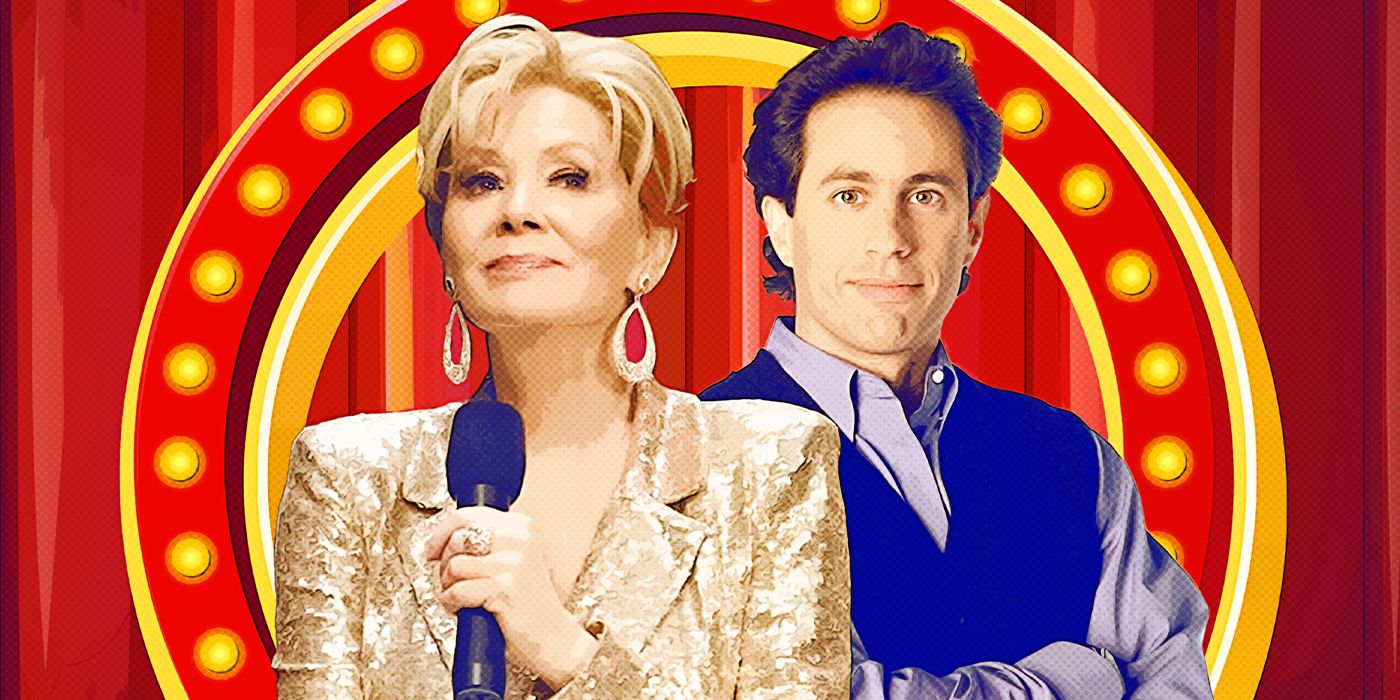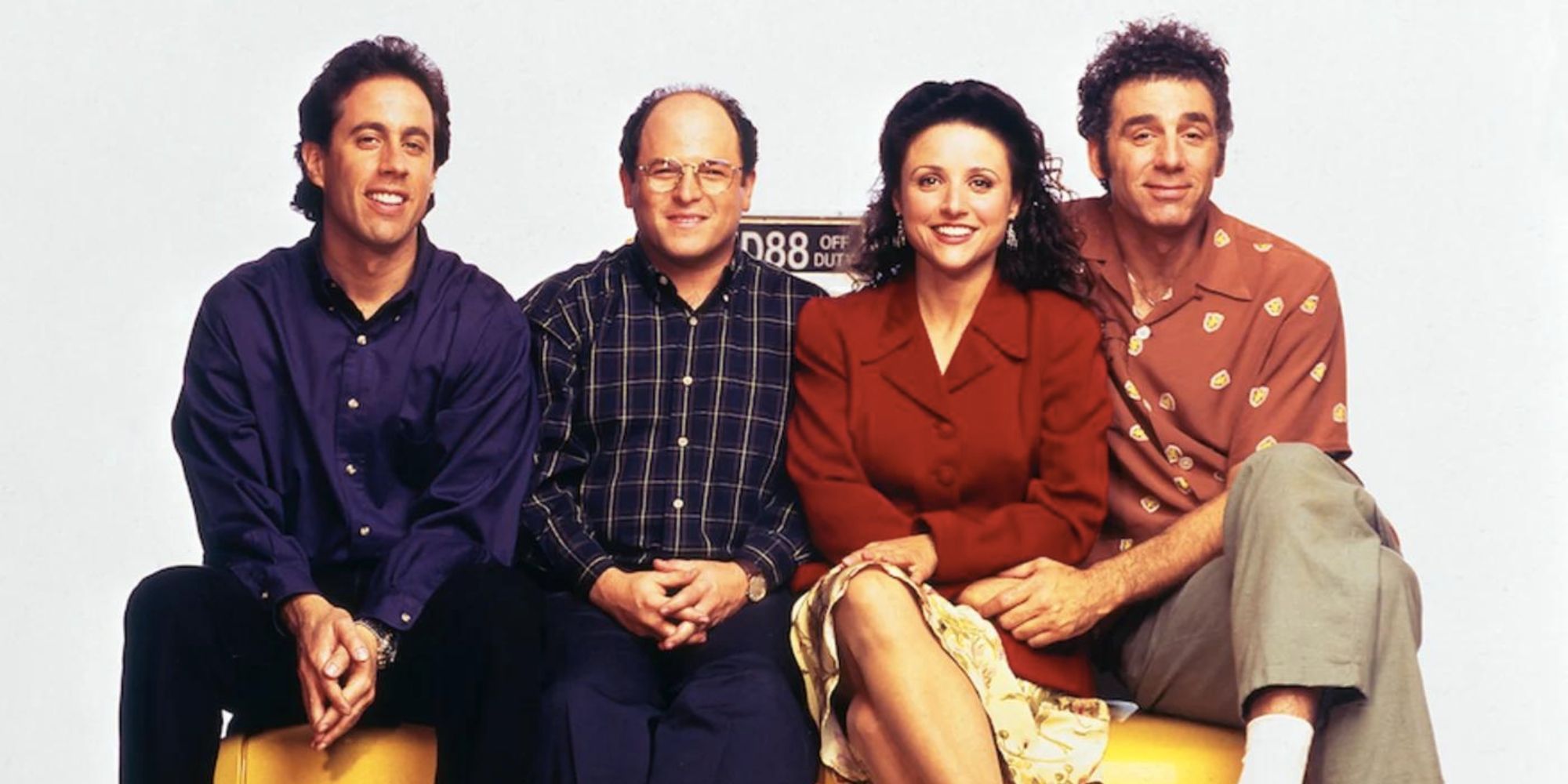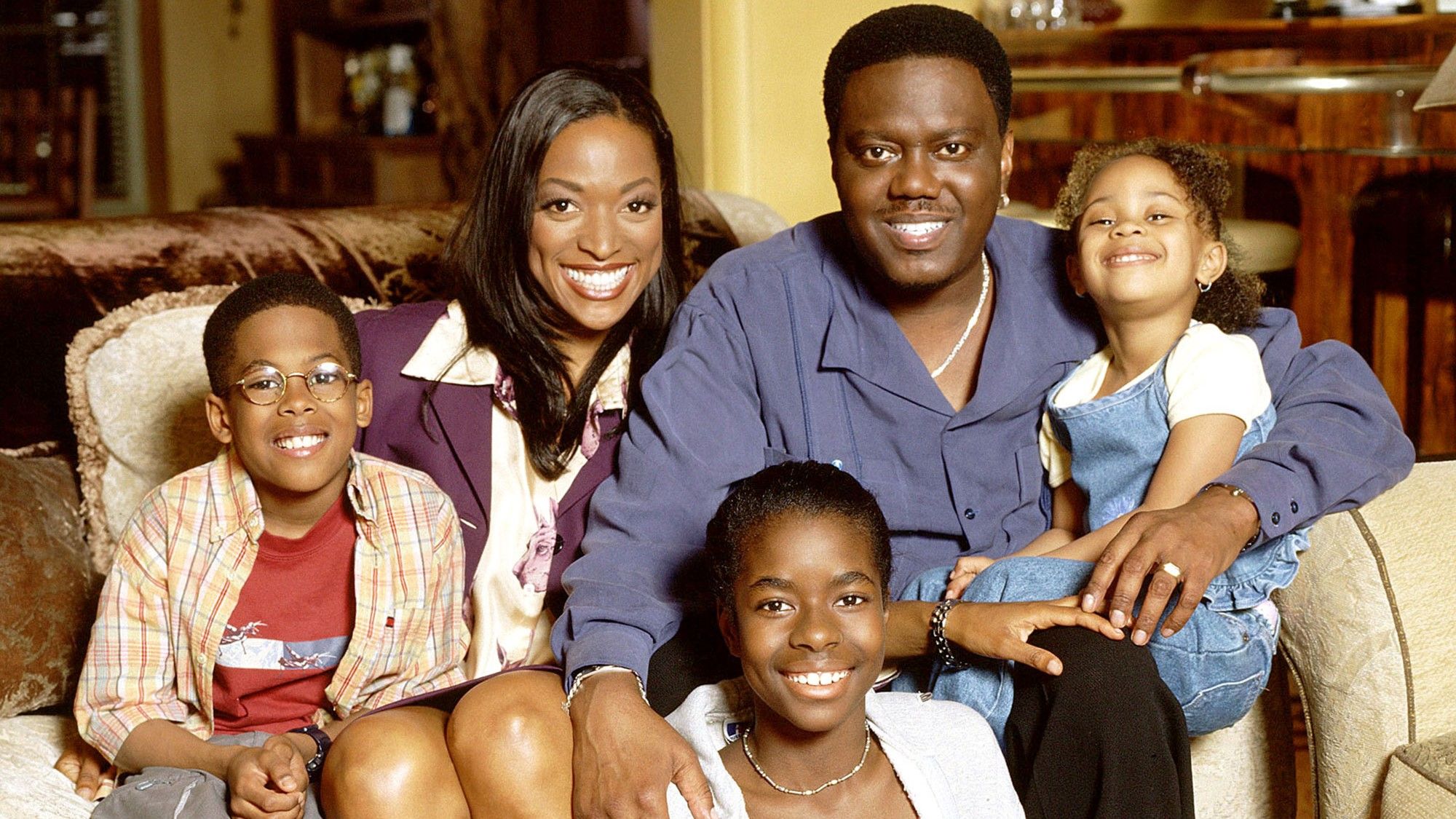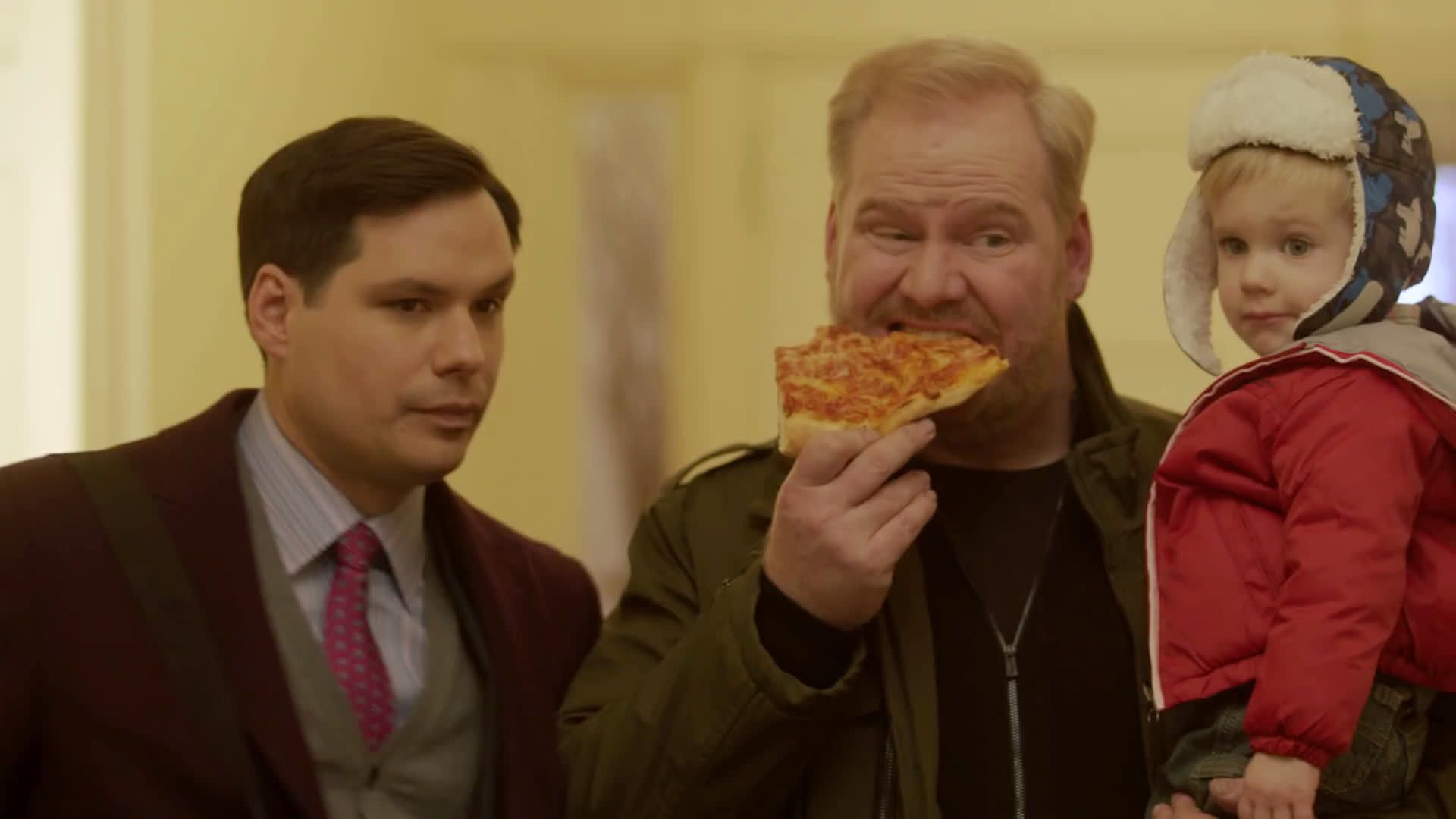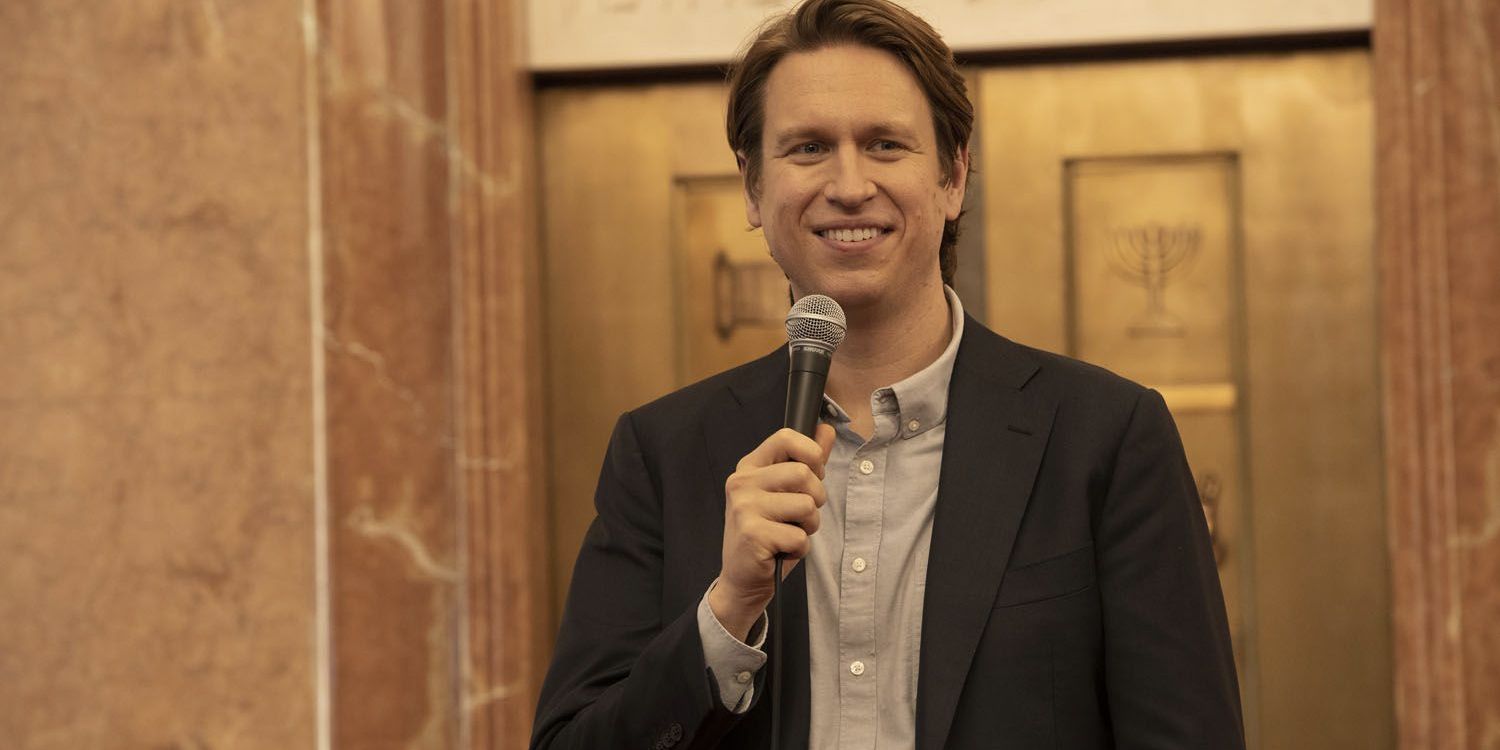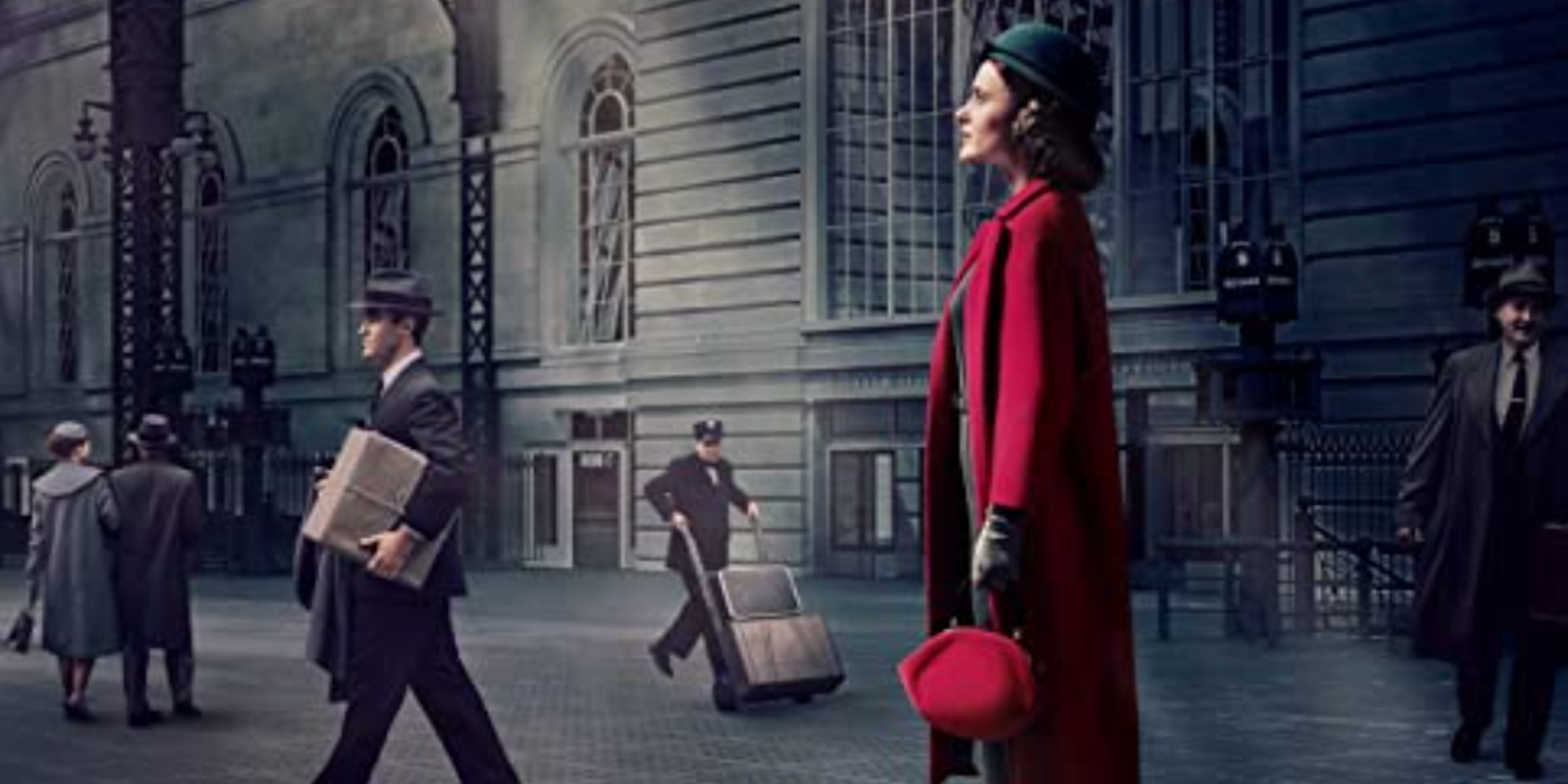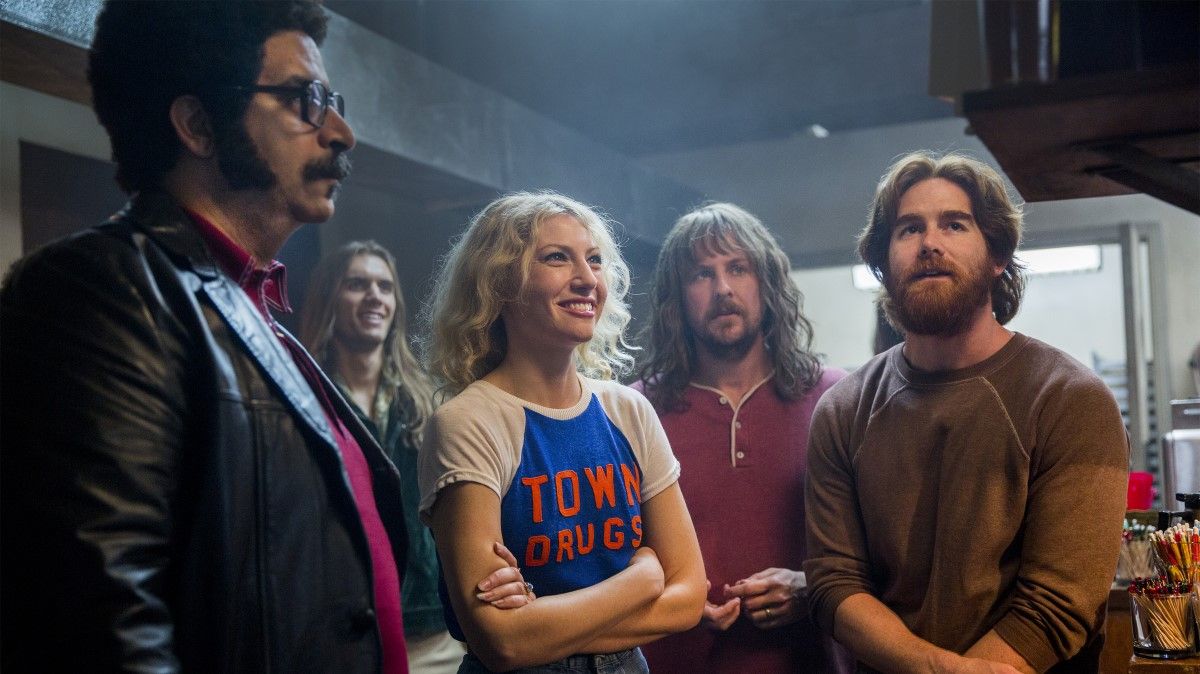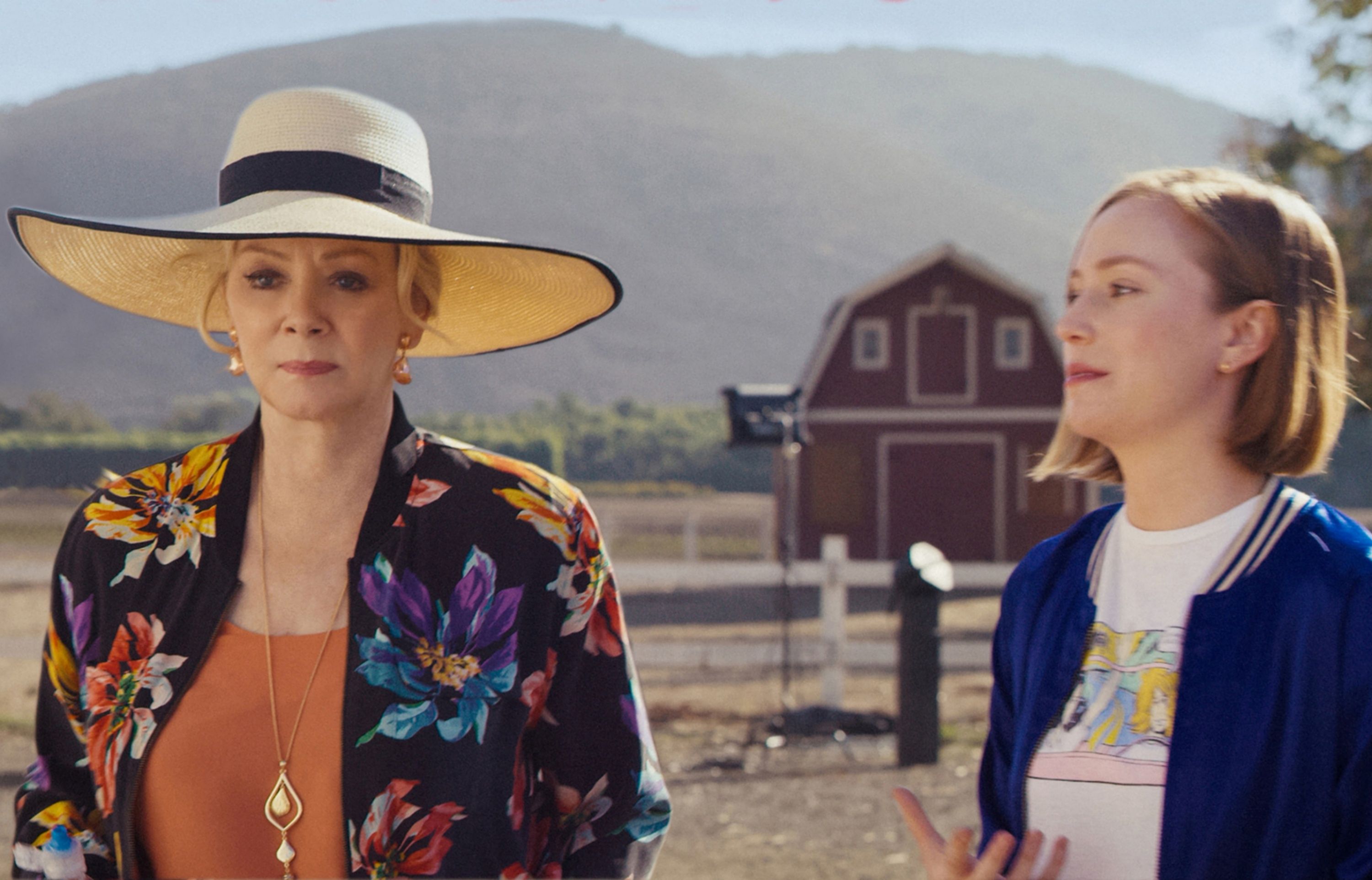While it may seem simple to depict stand-up comedy on screen — simply point the camera at the subject telling jokes, and you’re home free — a truly satisfying series about the ins and outs of both live comedy performance and the life of a stand-up is a rare find. Often, the stand-up on screen must be genuinely funny (an audience of people laughing won’t save the scene from that), or, alternatively, both the jokes themselves and the camera must reflect where the character is at during that point in their lives or in their stand-up career. However, there are a few television series that do all of the above, and also manage to make us root for their protagonists the whole way through. From slapstick '90s sitcoms like Seinfeld to more recent, moodier dark comedies like Hacks, the following titles are exceptional in their depiction of stand-up comedy.
Seinfeld (1989 - 1998)
Written in the instantly recognizable style of co-creators Jerry Seinfeld and Larry David’s dry and irreverent take on the bizarre situations of everyday life, it’s difficult not to love every moment of Seinfeld. The show follows Jerry and his friends Elaine (Julia Louis-Dreyfus), George (Jason Alexander), and Kramer (Michael Richards) as they navigate their day-to-day lives in New York City. Not only did the series win 10 Primetime Emmys during its near-decade long run, it has become integral to pop culture.
Seinfeld was ahead of its time as it rejected and deconstructed the typical '80s and '90s sitcom storylines, which often hinged on a moral-driven life lesson. While it’s often described as a “show about nothing,” the series is truly anything but that. Indeed, when David and Seinfeld first went to NBC to discuss the series, they pitched it as a show about how a comedian gets his material. Indeed, this is what forms the premise of each episode: it’s a show about stand-up in its rawest form, despite only briefly showing actual stand-up comedy. Moreover, while on the surface it might just seem like a silly, episodic series about the minutiae of everyday life, it truly centers around the joy and beauty of friendship between these four characters.
The Bernie Mac Show (2001 - 2006)
This sitcom, created by comedian Larry Wilmore, follows Bernie Mac as a character loosely based on the real life late comedian. When Bernie learns that his sister is checking back into rehab, he must raise her three children with his wife Wanda (Kellita Smith). Among the abundance of awards that the series won was a Primetime Emmy Award and the prestigious Peabody Award.
The Bernie Mac Show, which was heavily inspired by Mac’s real stand-up acts, balances the tricky line between being both deeply emotional and outwardly hilarious. As Bernie navigates unexpected parenthood, each episode is layered with his trademark dry, acerbic humor. However, so much of the series also rests on the chemistry between Bernie and Wanda. Smith particularly delivers a standout performance throughout the show as the often frustrated, witty, and compassionate wife. It’s a must-watch as it highlights Mac’s incredibly sharp wit and incredible range.
The Jim Gaffigan Show (2015 - 2016)
Written by Jim Gaffigan himself, and co-produced by him and his wife Jeannie Gaffigan, the series follows the comedian as he navigates life as a stand-up while raising five children in a two-bedroom New York City apartment. Despite only lasting two seasons, the show received largely positive reviews, thanks to the intelligent writing and smart performances. If you're a fan of Gaffigan's stand-up, you're sure to love the series.
The series works brilliantly for a number of reasons, one of which is the combination of Gaffigan’s classic deadpan delivery and his trademark observational humor that emphasizes the trials and tribulations of parenthood. Not only does the depiction of stand-up feel authentic to Gaffigan’s real performances, it also portrays the difficulty of juggling a career in comedy with romance, friendship, and family. Gaffigan once again proves he’s a master of writing and performing comedy.
Crashing (2017 - 2019)
This HBO series was based on Pete Holmes’ real life and co-created by both Holmes and Judd Apatow. Crashing is perhaps one of the most earnest, heartfelt journeys about a struggling performer’s rise up the ranks in the cutthroat, competitive world of stand-up. While the series is star-studded with guest appearances from comedians like Artie Lange and John Mulaney, what gave the show such widespread acclaim was the strong writing which combines both pathos and a gallows style of humor.
The series is brilliant in how it depicts stand-up comedy, because it places emphasis on a stand-up’s evolution. The series begins with Pete as he lives a calm, sheltered suburban life with his wife Jessica (Lauren Lapkus), who he met at a Christian college. Immediately, Apatow and Holmes draw a parallel between Pete’s romantic life and his stand-up act. He’s unable to take risks and finds comfort in familiarity. However, as the series progresses, Pete’s stand-up act evolves as he starts to gain confidence and trust in his relationships, his friends, and in himself.
The Marvelous Mrs. Maisel (2017 - )
It’s a series that is deeply difficult not to love, thanks to the palpable, strong chemistry between Rachel Brosnahan’s Midge Maisel and Alex Borstein’s Susie Myerson. At the beginning of the show, Midge is a diligent, witty 1950s housewife who sees the upside to everything. However, when her husband leaves her, she subsequently realizes her stand-up talent as a result of the mentorship formed with the pessimistic Susie. Thanks to the stellar direction, whip-smart writing from TV legend Amy-Sherman Palladino, the show has taken home a whopping 20 Primetime Emmys.
The series bounces and moves between genres and moods: it’s both a drama and a comedy, it’s a period piece that also feels incredibly contemporary and relevant. It’s meticulously crafted in its recreation of 1950s costumes, production design, and the world of stand-up, which is in some ways wildly different to today, and in other ways terrifyingly similar. It’s delightful, heart-wrenching, and truly, genuinely very funny.
I’m Dying Up Here (2017 - 2018)
A series that ended far too early, I’m Dying Up Here follows a small circle of stand-ups as they hustle for fame and success in 1970s Los Angeles. The series received positive reviews thanks to the excellent cast, which includes Ari Graynor (Nick and Norah’s Infinite Playlist) and Jake Lacy (The White Lotus). Moreover, it’s a genuine look inside the world of stand-up comedy in this specific era of time, and how much of the success of a stand-up depended on whether they landed a gig on The Tonight Show Starring Johnny Carson.
While the cast is big, creator David Flebotte does a great job distinguishing each character's comedic style throughout the series. One of the best moments happens in the pilot, when Cassie Feder (Graynor) takes down a heckler in a way that beautifully sets up her character. It’s not a sterilized, clean depiction of the stand-up world. Indeed, Flebotte depicts the everyday struggles of stand-up comedians that still resonates today, despite the setting being decades away.
Hacks (2021 - )
This series, which is drenched in dark humor, comes from the brilliant trio behind Broad City: Lucia Aniello, Jen Statsky, and Paul W. Downs. Hacks explores the twisted mentorship that forms between a young, entitled television writer Ava Daniels (Hannah Einbinder) and the legendary stand-up comedian, Deborah Vance (Jean Smart), when unexpected circumstances bring them together. The razor-sharp, often emotional writing, electric direction, and stellar performances garnered the series three Primetime Emmy wins and an abundance of nominations.
Perhaps one of the most fundamentally brilliant aspects of the show is its portrayal of the clear generational gap in the world of comedy. Often, conflict arises because Deborah comes from a different set of standards learned through decades of hustling. Moreover, the way that the creators depict Deborah while she’s doing stand-up is always reflective and indicative of how she feels in her personal life. The quick-cut montages of her performing reflect her feeling powerful on stage, while the intimate, close up shots during more raw, emotional performances reflect her feeling insecure. It’s a masterclass in directing stand-up comedy for the screen, and there’s never a dull moment between Deborah and Ava.

